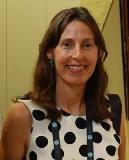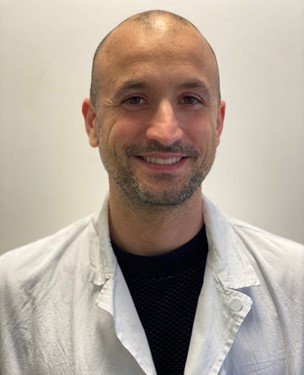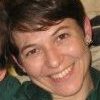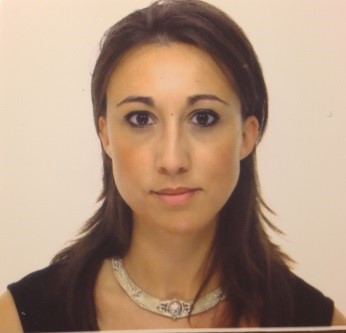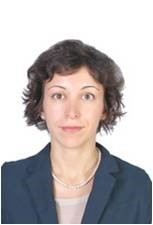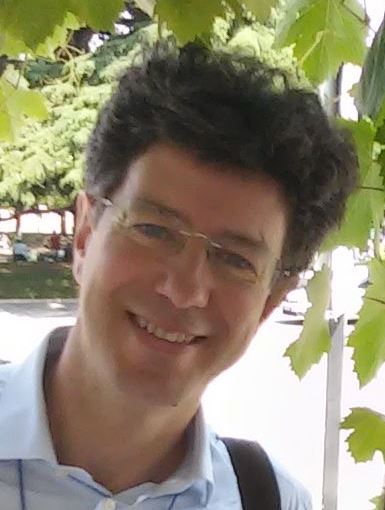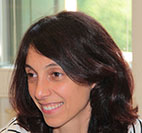Studying at the University of Verona
Here you can find information on the organisational aspects of the Programme, lecture timetables, learning activities and useful contact details for your time at the University, from enrolment to graduation.
Academic calendar
The academic calendar shows the deadlines and scheduled events that are relevant to students, teaching and technical-administrative staff of the University. Public holidays and University closures are also indicated. The academic year normally begins on 1 October each year and ends on 30 September of the following year.
Course calendar
The Academic Calendar sets out the degree programme lecture and exam timetables, as well as the relevant university closure dates..
| Period | From | To |
|---|---|---|
| I semestre | Oct 1, 2020 | Jan 29, 2021 |
| II semestre | Mar 1, 2021 | Jun 11, 2021 |
| Session | From | To |
|---|---|---|
| Sessione invernale d'esame | Feb 1, 2021 | Feb 26, 2021 |
| Sessione estiva d'esame | Jun 14, 2021 | Jul 30, 2021 |
| Sessione autunnale d'esame | Sep 1, 2021 | Sep 30, 2021 |
| Session | From | To |
|---|---|---|
| sessione estiva di laurea | Jul 13, 2021 | Jul 13, 2021 |
| Sessione autunnale di laurea | Oct 12, 2021 | Oct 12, 2021 |
| Sessione invernale di laurea | Mar 10, 2022 | Mar 10, 2022 |
| Period | From | To |
|---|---|---|
| Festa dell'Immacolata | Dec 8, 2020 | Dec 8, 2020 |
| Vacanze Natalizie | Dec 24, 2020 | Jan 3, 2021 |
| Epifania | Jan 6, 2021 | Jan 6, 2021 |
| Vacanze Pasquali | Apr 2, 2021 | Apr 5, 2021 |
| Festa del Santo Patrono | May 21, 2021 | May 21, 2021 |
| Festa della Repubblica | Jun 2, 2021 | Jun 2, 2021 |
| Vacanze estive | Aug 9, 2021 | Aug 15, 2021 |
Exam calendar
Exam dates and rounds are managed by the relevant Science and Engineering Teaching and Student Services Unit.
To view all the exam sessions available, please use the Exam dashboard on ESSE3.
If you forgot your login details or have problems logging in, please contact the relevant IT HelpDesk, or check the login details recovery web page.
Academic staff
 vittoria.cozza@univr.it
vittoria.cozza@univr.it
Study Plan
The Study Plan includes all modules, teaching and learning activities that each student will need to undertake during their time at the University.
Please select your Study Plan based on your enrollment year.
1° Year
| Modules | Credits | TAF | SSD |
|---|
2 modules among the following2° Year activated in the A.Y. 2021/2022
| Modules | Credits | TAF | SSD |
|---|
3 modules among the following| Modules | Credits | TAF | SSD |
|---|
2 modules among the following| Modules | Credits | TAF | SSD |
|---|
3 modules among the following| Modules | Credits | TAF | SSD |
|---|
Legend | Type of training activity (TTA)
TAF (Type of Educational Activity) All courses and activities are classified into different types of educational activities, indicated by a letter.
Molecular Genetics and Genomic Tools for Plant Breeding (2020/2021)
Teaching code
4S008241
Credits
6
Language
Italian
Scientific Disciplinary Sector (SSD)
AGR/07 - AGRICULTURAL GENETICS
The teaching is organized as follows:
Miglioramento genetico teoria
Genetica molecolare teoria
Genetica molecolare laboratorio
Learning outcomes
This course will provide to students knowledge of the main genetic and molecular strategies for crop breeding. This strategies are either assisted by molecular markers and genomics, or relies on gene expression analysis or on the production and application of transgenic plants. This course will also provide means for studying plant genetic variability, and will describe methodologies currently used for the identification of genes and new sources of variability, to be applied in plant breeding. Most modern plant biotechnologies and new breeding technologies as well as their possible applications to increase food-crop productivity and quality will also be presented.
Program
INTRODUCTION TO MOLECULAR GENETICS.
Molecular genetics for increasing crop yield;
Green revolution, Harvest Index;
GAI and the green revolution genes;
Plant architecture and yield;
Perennialism.
PLANT GENOME
Evolution of plant genomes;
Transposable elements and their role on gene expression;
Genomes of organelles and interaction with nuclear genome.
GENE FUNCTION ANALYSIS.
Mutant collections;
Tilling;
Gene silencing;
RNA interfering.
EPIGENETICS
Histone modifications;
DNA methylation;
Epigenetic regulation in plant responses to the environment.
PLANT GENETIC TRANSFORMATION
Expression of heterologous genes in plants (increase yield/improve quality);
Genome editing in plants.
Discussion on Genome editing and the cultivation of transgenic plants (Prof.ssa Furini).
--------------------------------------------------------------------------------------------------------------------------------------------------------------------
INTRODUCTION TO GENOMIC ASSISTED BREEDING
MOLECULAR MARKERS:
Phenotypic, biochemical or DNA based genetic markers
History of classical DNA based markers, SSR
SNP identification and analysis (single SNP, middle throughput, high throughput: SNPChips, RADSeq, GBS, resequencing)
GENETIC DIVERSITY ANALYSIS
Genetic distance measures; Index for genetic distance evaluation among individuals and population; grouping
Crop variety definition and molecular analysis; fingerprinting and varietal identification
METHODS IN MAPPING OF GENES/QTLS FOR INTERESTING TRAITS IN CROPS
Segregation and production of genetic maps on biparental crosses; strategies for genes and QTL mapping, fine mapping and cloning of genes and QTLs; BSA; mapping by sequencing; QTL-Seq
Linkage disequilibrium; Mapping by association, GWAS;
Markers assisted selection (MAS)
Genomic selection
Discussion of genomics applied to crop breeding examples (Prof. Bellin)
Examination Methods
Learning outcomes will be tested by oral examination on whole program of theory and laboratory parts by each of the two teachers of the two modules. Final mark will be derived by averaging marks for each module.
Type D and Type F activities
Le attività formative in ambito D o F comprendono gli insegnamenti impartiti presso l'Università di Verona o periodi di stage/tirocinio professionale.
Nella scelta delle attività di tipo D, gli studenti dovranno tener presente che in sede di approvazione si terrà conto della coerenza delle loro scelte con il progetto formativo del loro piano di studio e dell'adeguatezza delle motivazioni eventualmente fornite.
| years | Modules | TAF | Teacher |
|---|---|---|---|
| 1° 2° | Python programming language | D |
Vittoria Cozza
(Coordinator)
|
Career prospects
Module/Programme news
News for students
There you will find information, resources and services useful during your time at the University (Student’s exam record, your study plan on ESSE3, Distance Learning courses, university email account, office forms, administrative procedures, etc.). You can log into MyUnivr with your GIA login details: only in this way will you be able to receive notification of all the notices from your teachers and your secretariat via email and also via the Univr app.
Graduation
Deadlines and administrative fulfilments
For deadlines, administrative fulfilments and notices on graduation sessions, please refer to the Graduation Sessions - Science and Engineering service.
Need to activate a thesis internship
For thesis-related internships, it is not always necessary to activate an internship through the Internship Office. For further information, please consult the dedicated document, which can be found in the 'Documents' section of the Internships and work orientation - Science e Engineering service.
Final examination regulations
List of thesis proposals
| theses proposals | Research area |
|---|---|
| Dinamiche della metilazione del DNA e loro contributo durante il processo di maturazione della bacca di vite. | Various topics |
| Miglioramento del profilo nutrizionale e funzionale di sfarinati di cereali mediante fermentazione con batteri lattici | Various topics |
| Risposte trascrittomiche a sollecitazioni ambientali in vite | Various topics |
| Studio delle basi genomico-funzionali del processo di embriogenesi somatica in vite | Various topics |
Attendance modes and venues
As stated in the Didactic Regulations, there is no generalised obligation of attendance. Individual lecturers are, however, free to require a minimum number of hours of attendance for eligibilitỳ for the profit exam of the teaching they teach. In such cases, attendance of teaching activities is monitored in accordance with procedures communicated in advance to students.
Part-time enrolment is permitted. Find out more on the Part-time enrolment possibilities page.
The course's teaching activities take place in the Science and Engineering area, which is composed of the buildings of Ca‘ Vignal 1, Ca’ Vignal 2, Ca' Vignal 3 and Piramide, located in the Borgo Roma cluster, and Villa Lebrecht and Villa Eugenia located in the San Floriano di Valpolicella cluster.
Lectures are held in the classrooms of Ca‘ Vignal 1, Ca’ Vignal 2 and Ca' Vignal 3, while practical exercises take place in the teaching laboratories dedicated to the various activities.

 +39 045 802 7839
+39 045 802 7839


